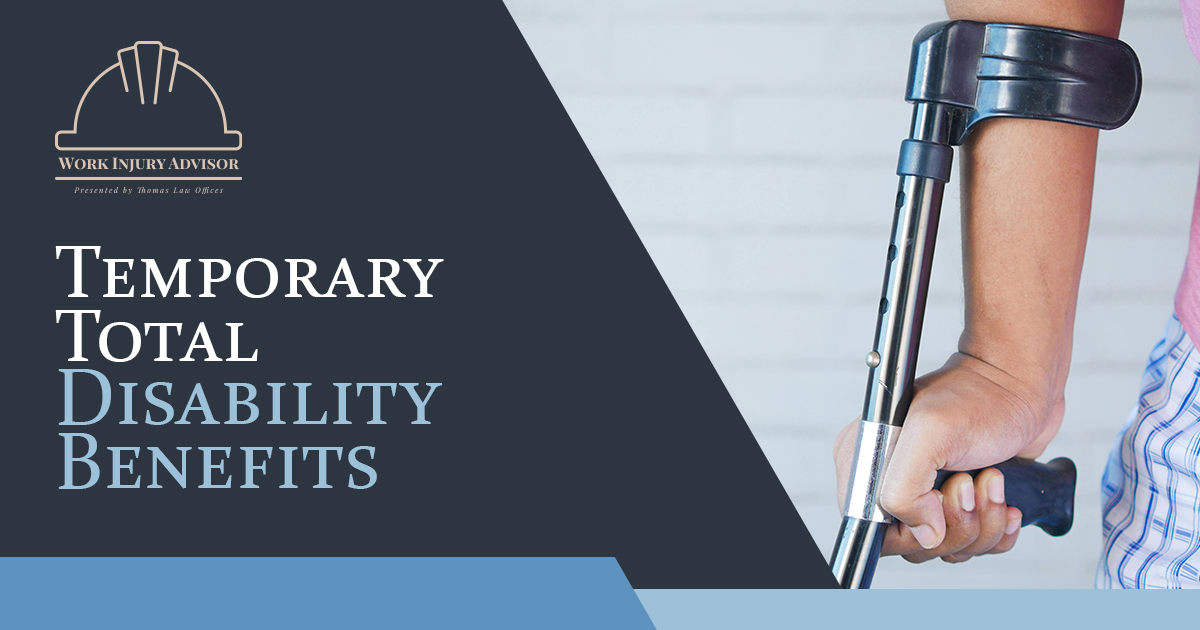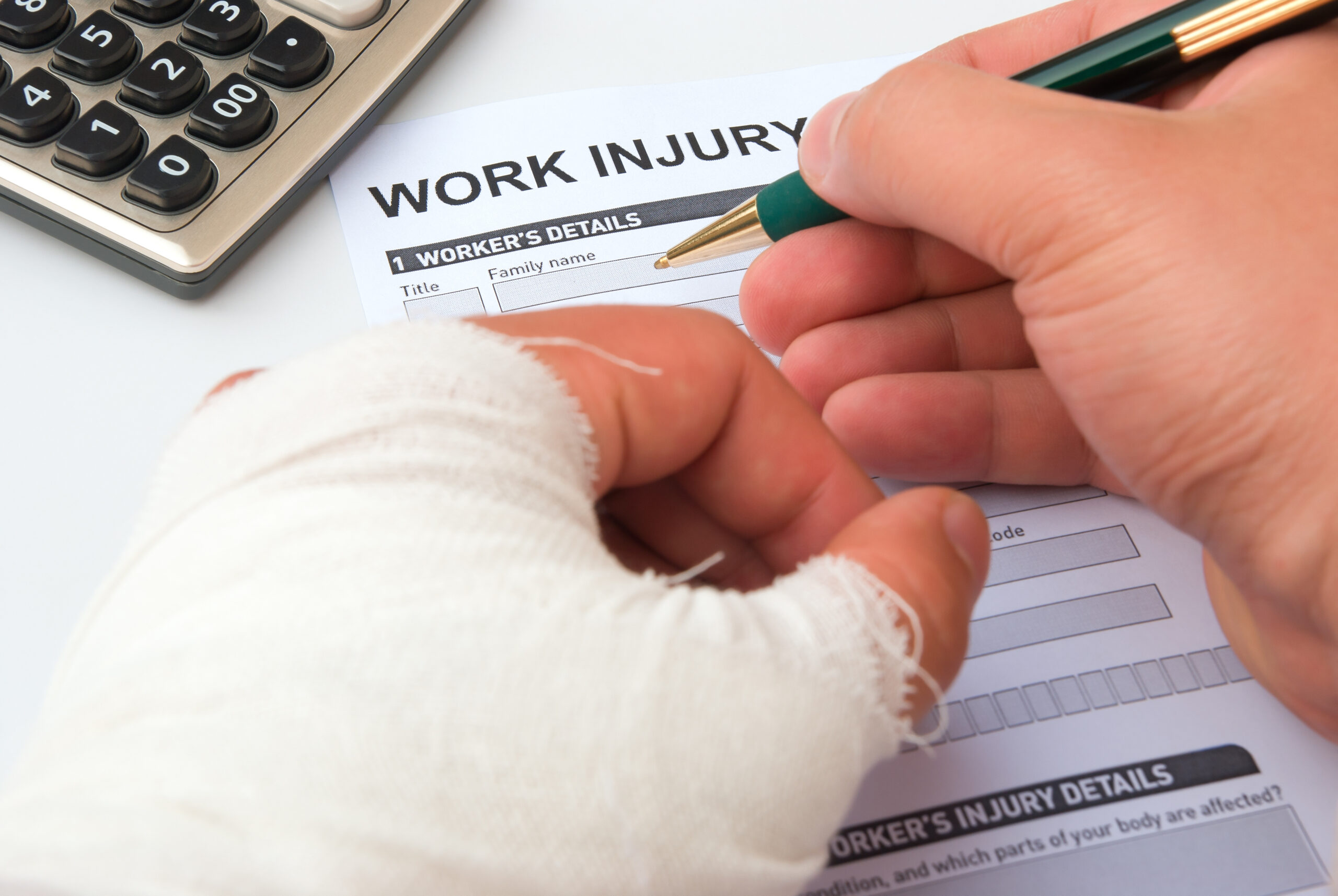- Home
- Workers’ Compensation Wage Replacement Benefits
- Temporary Total Disability Benefits

If you have suffered a work-related injury or illness, you may wonder about paying your medical expenses and other bills. Workers’ compensation can help bridge the income gap while you recover.
One type of benefit is known as temporary total disability (TTD), which can provide some financial assistance when you have been temporarily disabled.
However, if you want to qualify, you will have to meet specific criteria to receive these benefits.
Here is an in-depth look at the process for applying for temporary total disability and what you can expect when you receive this financial assistance.
What Are TTD Benefits?
You apply for temporary total disability benefits because you require financial support because you cannot work due to a workplace injury or occupational disease. Your illness or impairment must only be temporary, meaning you are incapacitated and cannot return to work at this time but will eventually be able to do so. According to the National Academy of Social Insurance, these benefits are the most commonly issued.
TTD benefits differ from other workers’ comp ones. For example, temporary partial disability (TPD) is available for those who are affected by an injury or illness but can still work in a reduced capacity.
With permanent partial disability (PPD), the employee can work in a lesser capacity than before the injury or illness.
Finally, permanent total disability (PTD) benefits are available for those who have suffered a permanent injury or illness and have no chance of returning to the workforce.
Of course, the descriptions above are just general overviews of these benefits, and the options available in your state could vary. If you want to learn more, make sure to contact your state’s workers’ compensation program or an attorney who regularly handles workplace injury or illness cases.
Qualifying for Workers’ Comp If You Have a Temporary Total Disability
If you want to apply for temporary total disability benefits, you will need to meet a few qualifications. Like any type of workers’ comp, the injury or illness must be job-related. So, if you have been hurt or fell ill while carrying out your job duties, you can qualify for these benefits.
However, remember that you also have to be an employee of a company as well. Unfortunately, if you are classified as an independent contractor or volunteer, then you cannot collect these benefits unless you have purchased this insurance on your own.
After you have qualified, there are certain steps involved in filing a claim. If you have been injured, you will need to file a claim with your employer. For that reason, you must promptly report the incident to your employer to start the claims process soon after you’ve been injured or learn of your occupational disease diagnosis.
By doing this, you can set the foundation to prove the claim’s validity. Sometimes, if you delay, that can lead to questions about whether the injury resulted from a work-related duty or another (uncovered) activity.
Along with that, you will need to have a complete examination by a doctor. This evaluation can help determine the severity of your injury or illness. Also, this will decide whether or not you will qualify for TTD benefits.
Will I Receive Payments Immediately If I’m Eligible for TTD?
In most cases, there is a waiting period, which could be anywhere from three to seven days, before your temporary total disability payments will start. Sometimes, you could qualify for retroactive benefits, especially if your illness or injury persists past a certain amount of time.
At this stage, you will receive retroactive benefits for the initial incident that led to your disability. For this reason, you must have a clear timeline of when you were injured, as it could affect the start date of your current workers’ comp benefits and also allow you to collect some retroactively.
What Can I Expect as a Payment Amount If I’m Temporarily and Totally Disabled?
Temporary total disability benefits are calculated as approximately two-thirds of the injured employee’s average weekly wage before the injury. If you have suffered an injury or illness, you will receive a major portion of your income even as you recover away from the job.
However, keep in mind that the maximum payout amount is based on the limits set by your particular state. Some states even have an established minimum amount they pay to ensure that all workers will receive adequate remuneration to cover basic expenses while they receive workers’ compensation benefits.
If you want to know about taxes, in most cases, TTD benefits are not considered taxable income. That means most employees do not have to report them on their federal income tax returns. Keep in mind that there are exceptions to this rule.
If an employee receives both workers’ compensation benefits and Social Security Disability Income (SSDI), the combined total may exceed 80% of their pre-injury income. However, these cases are only applicable when the workers have suffered a permanent work-related disability, not a temporarily disabling one.
How Long Will I Receive Benefits?
If you receive temporary total disability benefits, the duration will depend on a few factors. First, you will continue receiving them as long as your treating doctor believes your injury or illness will affect your work. Once you have recovered, you will receive an authorization to return to work.
Sometimes, you may have reached the maximum medical improvement (MMI), but you still have some degree of permanent disability. In cases like these, your TTD benefits may continue.
Once again, there could be state-specific limits that could affect your claim. Always reach out to your state workers’ compensation board or an attorney who regularly handles these cases to verify your eligibility for these benefits.
Temporary total disability benefits are a type of workers’ compensation that can provide essential financial support during your recovery period, especially when you lose income due to a work-related illness or injury.
Remember that specific rules and regulations vary by state. You will always want to check with your local workers’ compensation board to find out if you qualify.
